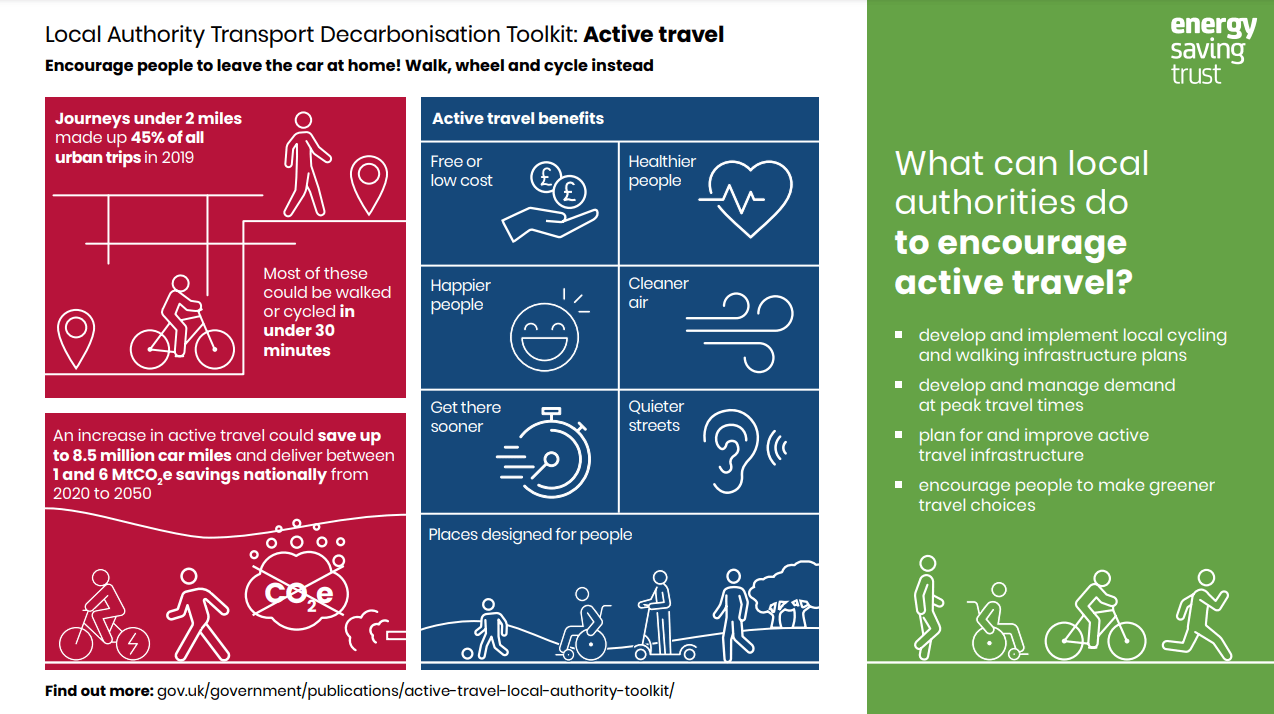The local authority toolkit provides guidance on planning and delivering measures to reduce carbon emissions from transport in England. The toolkit highlights the benefits of a range of approaches but encourages councils to consider only those that are appropriate to their local area and the needs of the local population. It sets out the key actions for local authorities and identifies case studies of schemes that are already delivering benefits.
The toolkit covers nine different interventions that local authorities could implement, including active travel, car clubs, freight and deliveries, and demand responsive transport. It also contains specific guidance for rural authorities on how approaches are already being successfully implemented.
You can access a recording from the launch of the LA Toolkit here.
The toolkit sits alongside other transport decarbonisation support to help local authorities. This includes:
Later this year, the Department for Transport will publish updated Local Transport Plan (LTP) guidance for authorities in England, which will set out how quantifiable carbon reductions must be included in LTPs, making this a fundamental part of local transport planning and funding.
It will support local transport authorities to bring their LTPs in line with current government priorities, including decarbonisation, and help improve delivery of local transport services for transport users.
